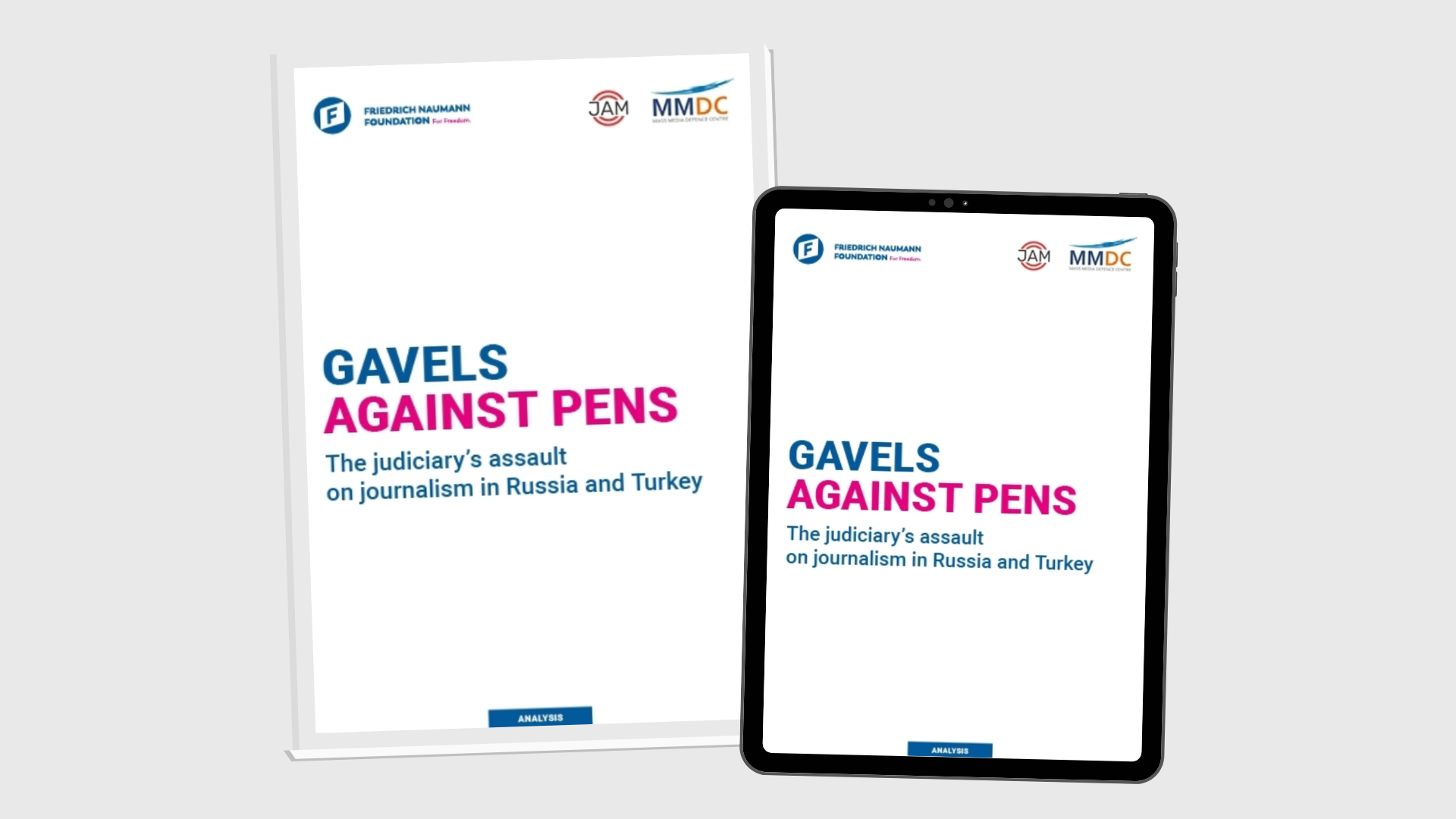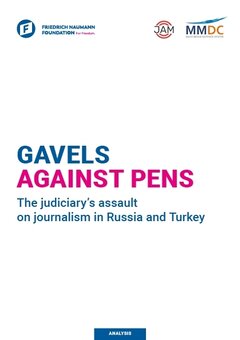Media
Gavels vs Pens: The judicial story of Russian and Turkish free media repression

“Nobody’s immune to anything. You have to understand the different kinds of pressures people feel like they’re under. What do totalitarian governments of any kind try to do immediately? They try to control communications networks. In a coup, they grab the radio and television. They try to shut down communications, and education, so that nothing is taught that isn’t copacetic with their own views. Those are two things totalitarian governments will try to do. A third is to control the judiciary, so the views of the judges and lawyers are the same as the regime. This is an old playbook.” (Margaret Atwood, from an Interview with WIRED magazine May 2023 Issue)
In a new publication released today, a collaboration between civil society organizations JAM e.V. (the Association of Journalists and Lawyers for Freedom of Expression), the MMDC (Mass Media Defense Center) and Friedrich-Naumann-Foundation for Freedom, the autocratic playbook of judicial repression of the media is portrayed. It contains comprehensive reports of some cases, which fall under the definition of SLAPPs (Strategic Lawsuits against Public Participation) from both countries.
The publication demonstrates in detail the playbook of autocrats as beautifully expressed by Margaret Atwood in the above quote, meticulously scrutinizing escalating hostility and judicial assaults against journalists over the last two decades in both Russia and Turkey, largely orchestrated by their respective political regimes. The introduction by Nate Schenkkan of Freedom House, sets the stage for this analysis, arguing that while these nations are frequently grouped together as symbols of autocracy, there are critical distinctions between them.
Roman Zholud and Anna Romashchenko's chapters on Russia detail a carefully orchestrated "cleansing" of the free and critical information space, spearheaded by Putin's administration. This is particularly evident in the widespread censorship that accompanied Russia's 2022 invasion of Ukraine, a move that resulted in the blocking or outright ban of numerous independent media outlets. Simultaneously, in Turkey, as narrated by Barış Altıntaş and Sibel Yükler,the Erdoğan government's aggressive measures have caused the country to rank as the sixth-largest jailer of journalists globally.
These autocratic governments weaponize accusations of state crimes to silence and intimidate journalists, calling them 'traitors' or 'terrorists'. A notable case is that of Ivan Safronov in Russia, accused of high treason for allegedly passing confidential information to Czech special forces. Similarly, in Turkey, the government's interference in the editorial policy of news outlets, as illustrated in the Cumhuriyet saga narrated by Gökçer Tahiincioğlu, has led to a new cause of concern for press freedom.
The increased judicial harassment journalists face when reporting on state or corporate corruption is also detailed in the later chapters of the publication. Examples include the use of fabricated evidence against journalists in Russia, while in Turkey, journalists face the threat of financial ruin through lawsuits over corruption investigations. A notable example is the case of Pelin Ünker in Turkey, involved in the analysis of the infamous 'Paradise Papers,’ detailed in an article by Asuman Aranca.
The judiciary's attack on journalism in both Russia and Turkey has significant implications for the freedom of press and the very concept of democracy. In Russia, the result can be seen every day during the war. In Turkey, the process is still ongoing. Despite the risks, journalists in these nations continue to strive for the truth, highlighting the dire need for international support to safeguard press freedom.

